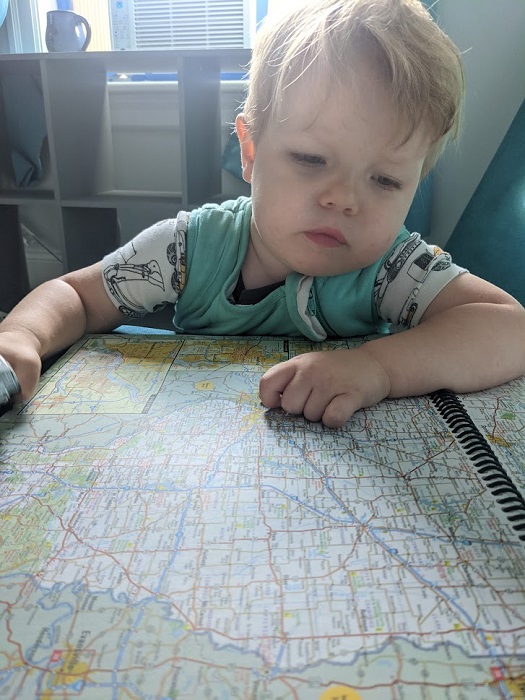Hey baby, do you ask yourself sometimes what you need to be forgiven? Everything that you've ever done wrong is the reason that I'm driven straight to you... -Counting Crows, High Life
I have trouble with forgetting. Or, better put, I don’t forget things. It’s not that I literally can’t or that I’ve never misremembered anything. But my emotional and autobiographical memories are stronger and more vivid and go back further than most anyone I’ve ever encountered, with the possible exception of my dad. One of the first nights in Albuquerque, my mom and I stayed up into the wee hours discussing the impact of memory on my past/present/future orientation (hint: it’s all past) and the corresponding inability to take her lifelong advice and “let go.” She understood, she said, better than ever before, and not just about me.
There’s an unpublished essay I’ve written about this that I don’t want to spoil; it was part of my thesis and has been rejected, as of this writing, 11 times since the spring of 2021. But it makes heavy reference to hyperthymesia, or HSAM (highly superior autobiographical memory). I don’t have HSAM, but I would say I’m in the spectrum just below it. The level of trivial detail (days of the week, meals) is not so heavily indexed, but the video-like vividness of scenery and dialogue in key moments, especially emotionally vibrant moments (which, let’s face it, is most of them) is familiar. And the testimony about the impact of this condition, on the knife-edge of blessing and curse (my mom is convinced pure curse), is all too resonant. From the linked Wikipedia article:
“Hyperthymestic abilities can have a detrimental effect. The constant, irrepressible stream of memories has caused significant disruption to Price’s life. She described her recollection as ‘non-stop, uncontrollable and totally exhausting’ and as ‘a burden’. Price is prone to getting lost in remembering. This can make it difficult to attend to the present or future, as she is often spending time re-living the past.”
“People with hyperthymesia also have difficulties letting go of difficult events or traumatic memories, which can stay with them for life. Joey DeGrandis, who was featured in the magazine Time said, ‘I do tend to dwell on things longer than the average person, and when something painful does happen, like a break-up or the loss of a family member, I don’t forget those feelings.'”
I am fascinated by forgiveness as a concept, and am hard-pressed (at least since the first time I was truly, deeply, and intentionally hurt by other people), to remember a time that I wasn’t. I have always struggled with forgiveness, and the vaunted link between forgiving and forgetting is surely a major reason why. As an analytical person, I’m inclined to think that this means few people are actually forgiving in the true sense of looking a significant and deliberate harm in the face, understanding both the malevolent intent and the damage done, and deciding to absolve the harm-doer. Remembering that you felt hurt by something in the past, but feeling the hurt fade and heal and deciding that it’s just not a big deal anymore feels like a different sort of resolution entirely.
So, I posted about it. Now technically, for the purposes of our little endeavor here, this post was on the same day as this, but much of the ongoing discussion and development happened yesterday, so I’m taking it.
Here’s the post:
I am deeply interested in reading sophisticated writing on the concept of forgiveness. Can be in any genre as long as there’s detail or focus on the specific mechanics and HOW that forgiveness works. Bonus points for material that doesn’t dwell on notions of forgetting or “letting go,” at least without further how-to on that. Please comment with recommendations.
As an example of what I am NOT looking for, this is my summary of most writing on forgiveness that I have yet encountered:
“It’s very important to a healthy lifestyle to be able to step off the fortieth floor of a building and fly. Don’t overthink it. Just fly. It seems hard at first, but think how hard it is NOT to fly! Flight is such a liberating feeling. You will feel so free and happy once you fly. Now, flying from the fortieth floor doesn’t mean you don’t acknowledge that gravity exists. It just means that you won’t let yourself be weighed down by it. You can’t afford to live your whole life on the ground. Doing so is knowing you could fly and hoping someone else will give you wings.”
The post has generated at least 15 recommendations and 53 comments, many of which are the results of a vigorous debate about the usefulness of Bible passages in the pursuit of an intellectual approach to forgiveness. I think much of the Bible corresponds to the platitudinous level of my false flight passage above, or worse is just an ultimatum/threat, but obviously Christian thoughts on forgiveness and absolution have been a pretty influential part of its overall popularity in human history for the last couple millennia (not everyone was converted by force).
Of course, one of the most vigorous advocates of forgiveness and I had a subsequent sidebar in which he recanted much of his ardor for the concept when he realized that I wasn’t mostly talking about moderate transgressions, but a handful of incidents that comprised existential betrayal. One person in particular, whose role in my life will be obvious to veteran readers, but not just her, as there have been both prior and subsequent betrayals that feel violative to the point of full attempted destruction.
I realized that this is at the core of forgiveness for me, or the only thing that makes it interesting, because this is the kind of robust damage and correspondingly robust forgiveness that tests the concept. I don’t struggle with day-to-day slights and trespasses, or at least I should say that I don’t in the medium-term. In the immediate term, I do tend to overreact to these as they trigger the trauma of past betrayal. At each turn, there is a significant part of my brain and nervous system that sound the alarm: This is the moment that this person, too is choosing to turn on you! Fight, fly, or freeze! This is obviously both unfair and exhausting for the people closest to me, who most frequently trigger this response and then (God love them) stick around to clean up the consequences. Years of therapy have occasionally slowed but really not significantly moved the needle on this initial reaction.
BUT, once I am able to work through that and realize that this is not, in fact, the moment and method for losing this person in my life, I am able to release them and absolve it. The thing that scares me is malevolent and destructive intent. Once I can come to understand that this wasn’t the intent, that this or that person isn’t actually harboring the desire to damage me, then absolution feels easy. We all make mistakes. And probably more importantly, as a deontologist, I can forgive almost anyone for unforeseen (well, maybe unforeseeable is better, since some folks feign a lack of foresight that just amounts to willful and probably disingenuous neglect) consequences. We don’t control our outcomes on a planet of eight billion souls. But by God, we can control our intentional actions.
Forgiveness for well remembered and willful destruction is possible. People forgive people who murder their loved ones! (Note that this article, while I think sincere, is punctuated by a version of the choosing-to-fly rhetoric that I find so aggravating: “That may sound strange to some people, but I’ve learnt that forgiveness is not about the perpetrator, it [sic] about you. It’s about you letting go of the stuff that holds you back so you can live a happy and fulfilling life.”) I may struggle, but I’m not facing anything like that degree of difficulty. And yet, I have no roadmap or even glimmer of comprehension of how I could get there myself.
But, thanks to many diligent friends and the magic of a social media platform that I will ardently defend (not the intent, I guess, but the impact), I have a lot of reading material to peruse to try to find a map. And if there’s one thing I’ve always loved, it’s a good map, no matter how treacherous or unstable the trails it depicts.

This is the fourth post in the One Thing series.
#3: Call Your Mother
#2: In the Land of Make-Believe
#1: Wistful Wisteria
Introduction: Announcement and Rules


